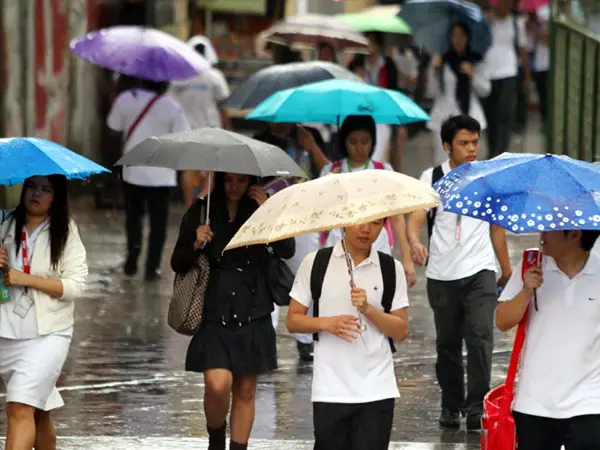With the frequent bang in the minds and emotions of people, most students don’t know what to feel when they were waiting for their classes to be suspended. And we’re not talking about terms wherein a student is just lazy to do so; it is because of unpleasant weather conditions.

After the entrance of a couple of typhoons in the country, most cities and municipalities resulted to them suspending the classes of their cities; some provinces even had overall cancellation and suspensions.
But did you know that it is a student’s privilege to be unable to attend to school given that their circumstances are difficult? And did you know that it is a signed document by the Commission on Higher Education (CHED)?
Read: Filipino Panitikan Deemed as Irrelevant in College Level
Why do classes get suspended in the first place?
Most cities and municipalities suspend classes due to a number of circumstances; apart from regular and special non-working holidays. They can be because of the following:
- When there are storm or typhoon signals
- Other natural calamities like earthquakes, fires, flash floods, tsunamis and the like
- Bomb threats, terrorism, etc.
NOTE: Both the Department of Education (DepED) and the Commission on Higher Education (CHED) are not the agencies who issue class cancellations or suspensions. It is the Local Government Unit’s (LGU’s) task and responsibility to do so.
Read: Where Can Students Register For The Free Train Rides?
Is there a written document about the cancellation or suspension of classes?
Definitely. In fact, it was a CHED Memorandum Order (CMO) which was an amendment to the CMO 34, series of 2010 with the title; “Clarificatory Guidelines For The Suspension Of Classes In Higher Education Institutions (HEIs) Due To Typhoons/Storms, Flooding, And Other Weather Disturbances.”
Read: CHED Priority Courses for the CHED Scholarship
If you read the CMO, you will see that in part five (5) of the document, it is stated that:
Even without the cancellation or suspension of classes, students who are unable to report to class or participate in scheduled school activities such as exams due to inclement weather shall be given consideration and be allowed to make up for the missed class or activity.”
Clearly, as stated in the CMO, should a student be able to provide enough evidence to showcase his or her inability to attend class due to unpleasant weather conditions and to other disturbances, he or she shall be given consideration by being allowed to make up for the missed day.
How can students avoid it?
As a common practice by most, if not all students, they check whether the classes are cancelled or not through different media outlets like the news on television, via the internet, via Facebook, via SMS from the NDRRMC (National Disaster Risk Reduction and Management Council).
Read: A Bill That Bans Classes That Would Start Earlier Than 8:30 A.M.
In addition to that, it was also stated in the CMO, in part four (4), that local chief executives and Higher Education Institution (HEI) heads shall make the announcement of class suspensions and cancellations not later than 4:30 A.M. of the day when the suspension/cancellation shall take effect.
Local Chief Executives and/or HEI heads or their duly authorized representatives shall make the announcement for the cancellation or suspension of classes not later than 4:30 A.M. of the day when cancellation or suspension shall take effect, using all available media outlets (radio, TV, SMS, website, and other forms of social media). For midday suspensions, the announcement shall be made not later than 11:00 A.M. School heads are advised to use proper discretion since there are times it is safer to keep the students in school rather than expose them to greater danger.
Read: Earlier Retirement Age Bill For Government Workers, Filed by Senator Gatchalian
So to all students, do not worry about waiting for the announcement for the cancellation or suspension of classes; it is a written document by the Higher Education Commission that should you be unable to attend to class because of a number of circumstances, you shall be allowed to make up for it.
Here is a copy of the Memorandum Order of CHED.
What do you think of this CMO that talks about the cancellation or suspension of classes? Do you think that it’s just fair to all students even to students in the Basic Education department? Could this be an effective and efficient way to keep students from harm?
